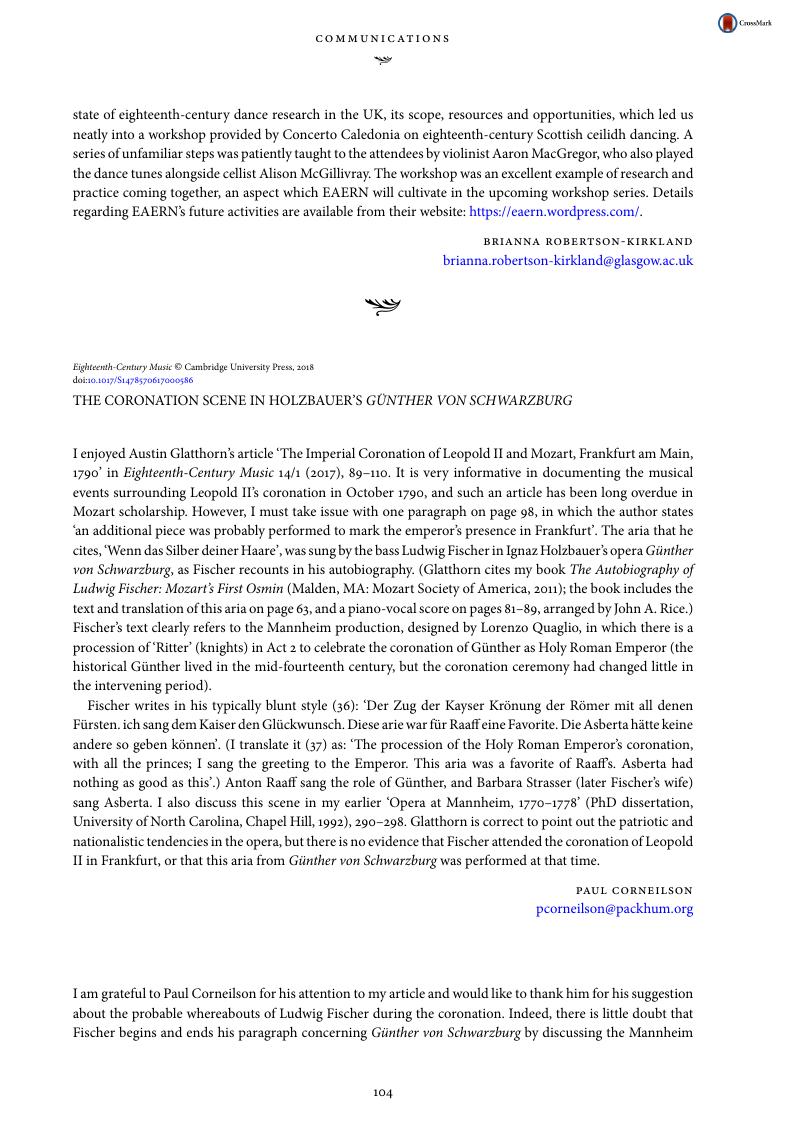No CrossRef data available.
Article contents
THE CORONATION SCENE IN HOLZBAUER'S GÜNTHER VON SCHWARZBURG
Published online by Cambridge University Press: 21 March 2018
Abstract
An abstract is not available for this content so a preview has been provided. Please use the Get access link above for information on how to access this content.

- Type
- Communications: Reports
- Information
- Copyright
- Copyright © Cambridge University Press 2018


